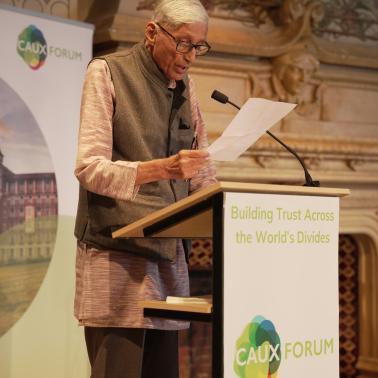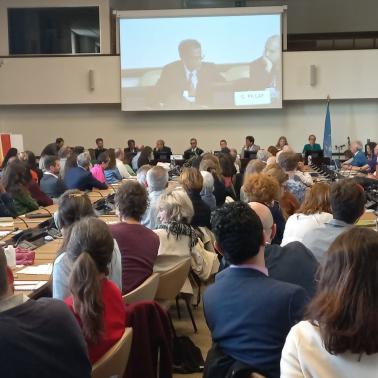
One does not need to look far to find the impetus for this pick. More than half of the world population lives under authoritarian or totalitarian regimes, and democratically high-performing countries — especially in Europe and the Americas — have suffered significant decline. Consequently, there has been a marked increase in public discourse meant to divide rather than unite. During the Initiatives of Change Caux Democracy Forum in July, Indian historian and activist, Rajmohan Gandhi, put it succinctly: ‘There is a battle between equality on the one hand and supremacy on the other, between democracy and strong-man rule. So, there is much to be troubled about.’
In this divisive political climate, global citizens must reckon with a growing conflation between information and truth — Believing biased news as fact while our collective ability to discern credible sources continues to fade. This is largely influenced by a wave of populist leaders rising to the fore, who systematically erode public confidence in established institutions like elections, peer-reviewed science and independent journalism, while laying unfounded blame on groups of people. The result is a culture of pervasive uncertainty, marginalization and mistrust.
Alongside these concerning trends, we must contend with generative AI technology reshaping politics, science and culture at breakneck speed. While AI holds exciting potential in medicine and climate change, to name a few, the technology is also used to advance oppression, racial bias and misogyny. In just one of many examples, the ongoing Rohingya genocide in Myanmar is the first ethnic cleansing campaign in history that was aided by non-human intelligence, as Facebook algorithms appealed to human outrage and stoked violent unrest in the country. We are at a critical inflection point of accountability within the tech sector, and lawmakers must catch up as we enter 2025.


